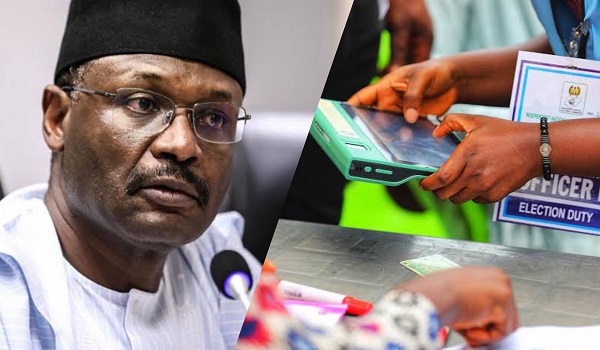- INEC has proposed amendments to the Electoral Act 2022 to clarify result management, focusing on manual transfer and electronic transmission
- The commission aims to address ambiguities highlighted during the 2023 elections, ensuring transparency and credibility in future electoral processes
The Independent National Electoral Commission (INEC) has initiated efforts to amend the Electoral Act 2022 to address ambiguities in result management, particularly regarding the manual transfer and electronic transmission of election results.
INEC Chairman, Prof. Mahmood Yakubu, disclosed this during a meeting with Resident Electoral Commissioners (RECs) in Abuja.
He emphasized that the proposal is part of eight legislative recommendations stemming from the 2023 general elections that require action by the National Assembly.
“One key highlight of the commission’s recommendations is the need for legal clarity in managing election results, particularly between manual transfer and electronic transmission,” Yakubu stated.
The credibility of the 2023 presidential election was questioned by opposition parties due to INEC’s failure to fully utilize the INEC Result Viewing Portal (IReV) as initially promised.
INEC cited a “system glitch” that hindered the timely uploading of results, forcing a reliance on manual collation.
Before the elections, INEC had committed to using the Bimodal Voter Accreditation System (BVAS) and IReV to enhance transparency.
However, after the glitches, INEC argued that IReV was meant to improve transparency rather than serve as the official collation or transmission system.
This stance was upheld by the Supreme Court, which ruled that the absence of results on the IReV portal did not constitute legal grounds to annul the February 2023 presidential election. Opposition parties described this decision as akin to “changing the rules midway through the game.”
Election observers and legal experts have since recommended amending the Electoral Act to mandate the electronic transmission of results.
Such a move, they argue, will bolster public confidence and reduce ambiguities in the electoral process.
INEC’s push for legislative reform aims to align legal provisions with modern electoral practices, ensuring transparency and credibility in future elections.
